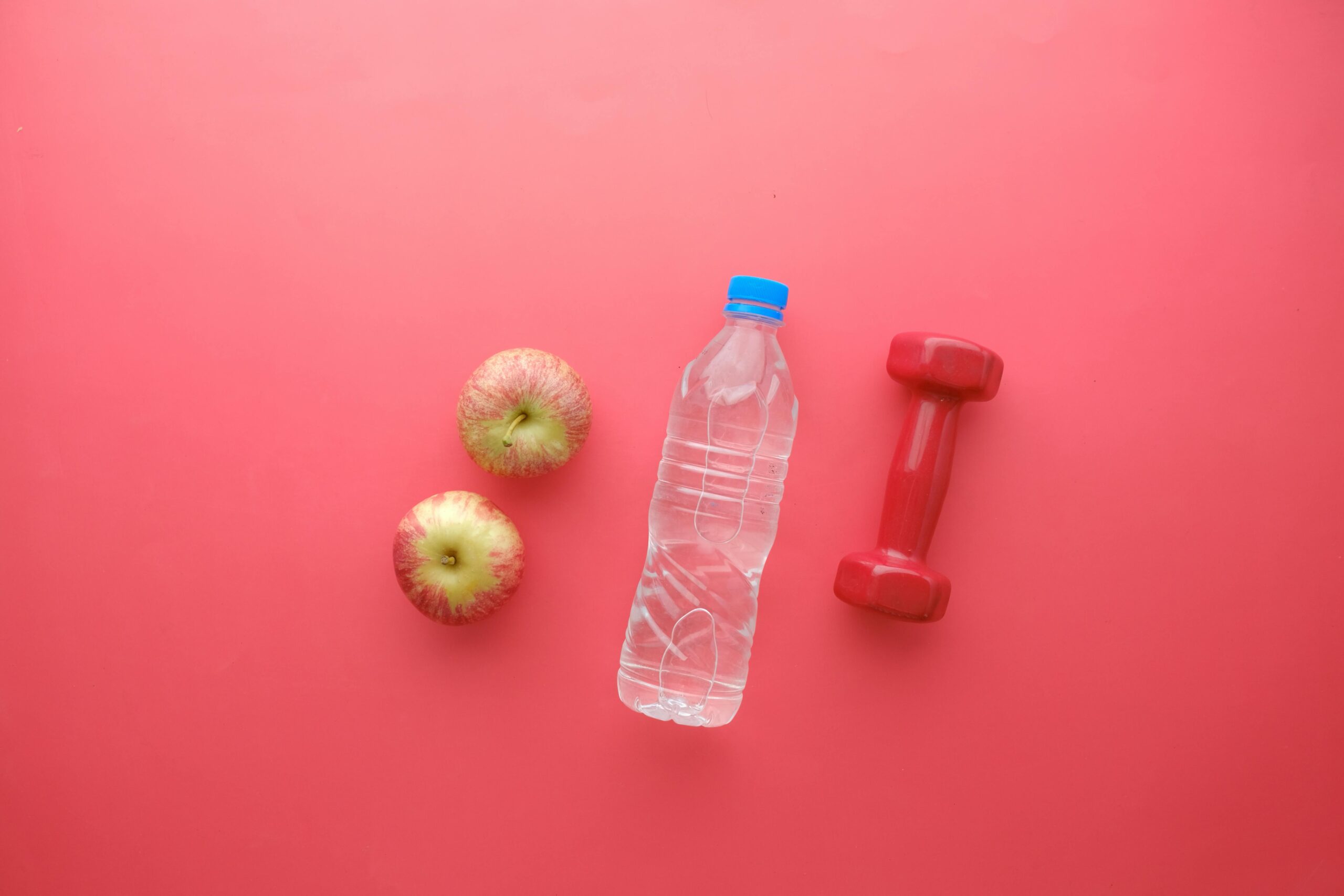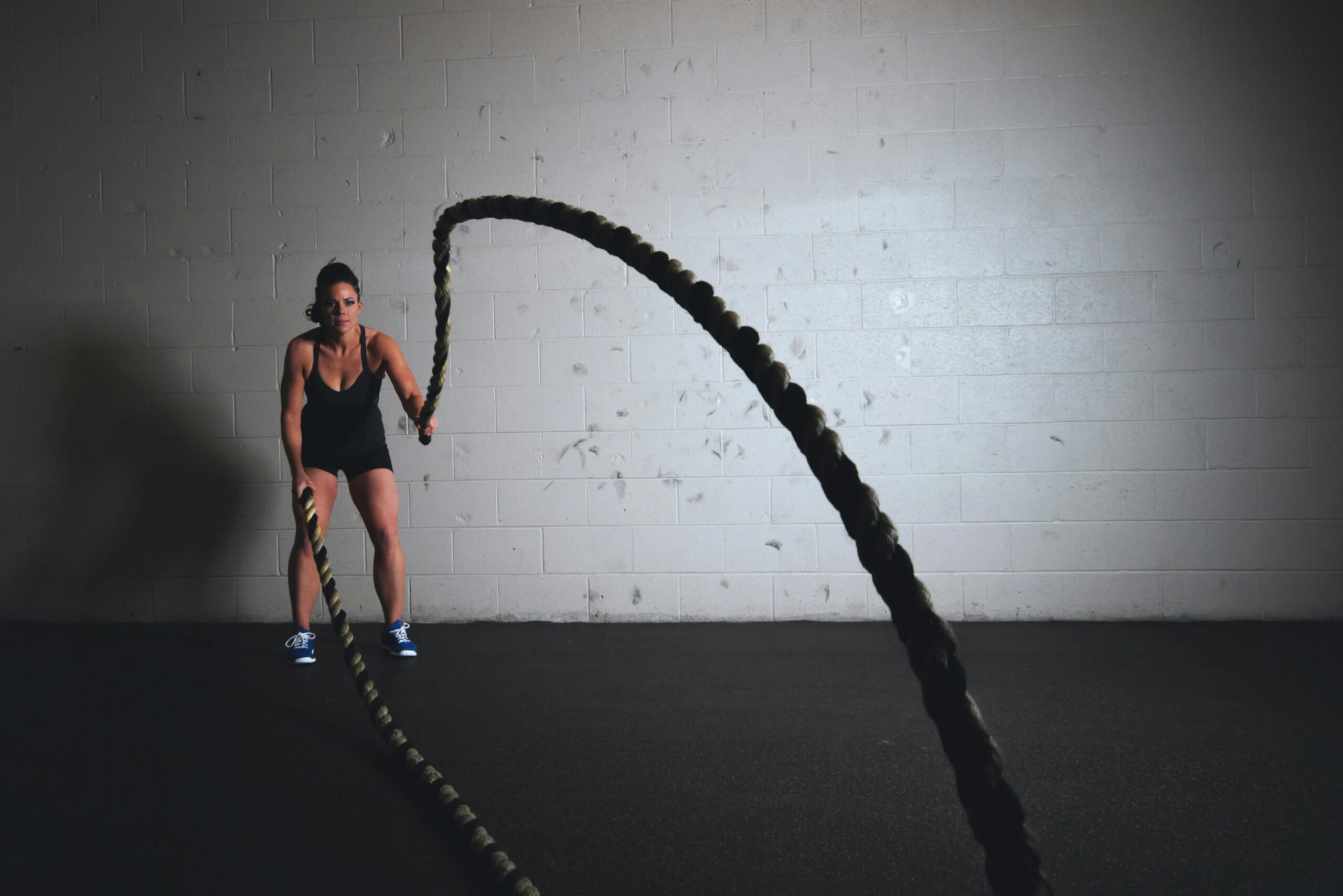Table of Contents
introduction
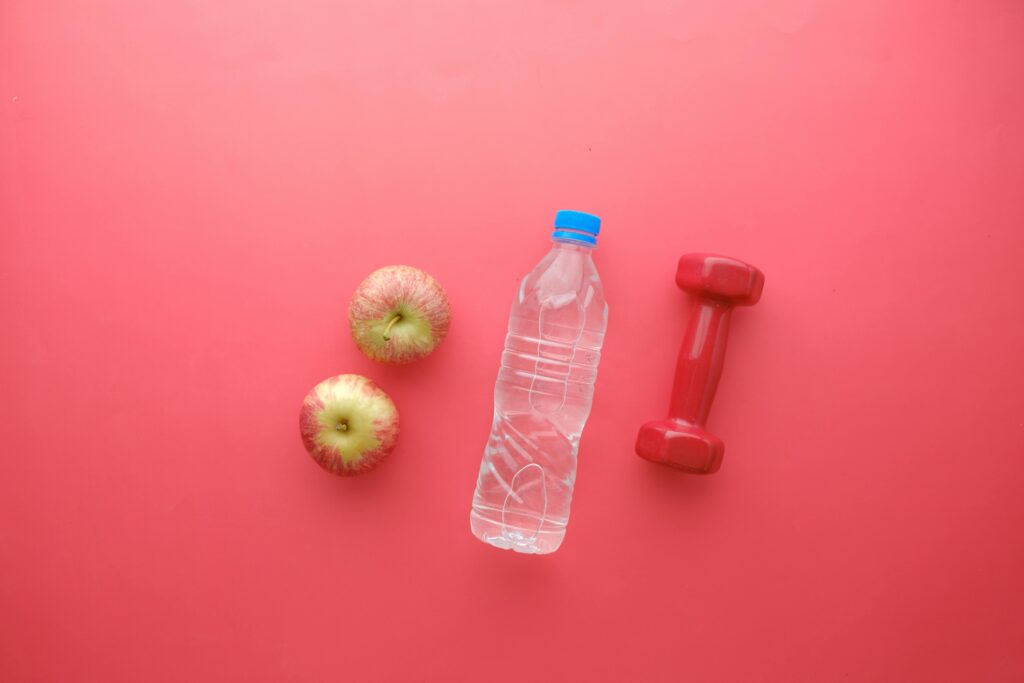
Hydration plays a crucial role in overall health and fitness, especially when it comes to workouts. Water is essential for regulating body temperature, lubricating joints, and delivering nutrients to cells. Whether you’re a seasoned athlete or a fitness enthusiast, staying hydrated before, during, and after your workout can significantly impact your performance and recovery.
In this comprehensive guide, we will explore the importance of hydration, how much water you should drink, the signs of dehydration, and the best practices to stay properly hydrated.
The Importance of Hydration in Workouts
Hydration is not just about drinking water; it’s about ensuring that your body maintains an optimal fluid balance. When you exercise, you lose water through sweat, and if you don’t replenish it, you may experience fatigue, muscle cramps, dizziness, and decreased performance.
Key Benefits of Staying Hydrated
- Enhanced Performance: Proper hydration improves endurance, strength, and flexibility.
- Temperature Regulation: Water helps keep your body cool and prevents overheating.
- Muscle Function: Hydration supports muscle contraction and reduces the risk of cramps.
- Improved Recovery: Drinking enough fluids after a workout helps in muscle repair and reduces soreness.
- Better Cardiovascular Health: Hydration supports proper circulation and heart function.
How Much Water Should You Drink?
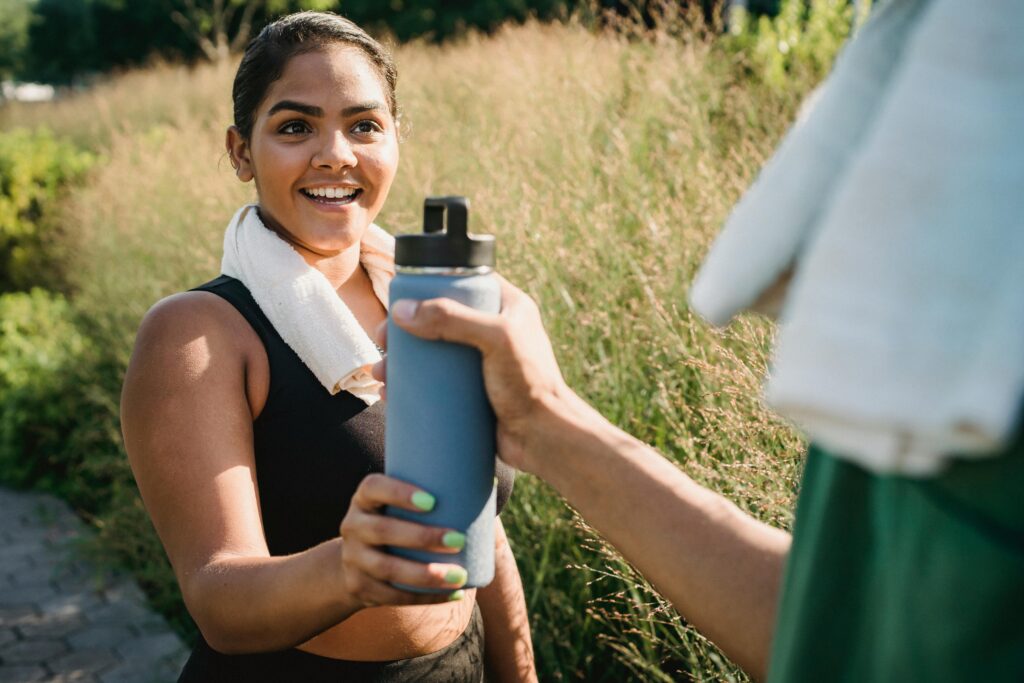
The amount of water needed varies from person to person based on factors like body weight, activity level, climate, and intensity of exercise. However, general guidelines suggest:
- Before Workout: 16-20 ounces (500-600 ml) of water at least 2-3 hours before exercise.
- During Workout: 7-10 ounces (200-300 ml) every 10-20 minutes, depending on sweat loss.
- After Workout: 16-24 ounces (500-750 ml) per pound of body weight lost during exercise.
A good way to monitor hydration levels is to check the color of your urine. Light yellow indicates proper hydration, while dark yellow or amber suggests dehydration.
Staying Hydrated Before a Workout
Pre-workout hydration sets the foundation for a successful session. If you start your workout dehydrated, you may experience fatigue and decreased performance.
Best Practices for Pre-Workout Hydration
- Drink Water Early: Start hydrating at least two hours before your workout.
- Consider Electrolytes: If you’re engaging in intense exercise, consume electrolyte-rich drinks.
- Avoid Alcohol and Caffeine: These can contribute to dehydration.
- Hydrate with Foods: Eat water-rich foods like watermelon, oranges, and cucumbers.
Staying Hydrated During a Workout

During exercise, your body loses fluids rapidly through sweat. Replenishing these fluids helps maintain energy levels and prevent overheating.
Tips for Intra-Workout Hydration
- Sip, Don’t Chug: Take small sips every few minutes rather than drinking large amounts at once.
- Use Sports Drinks When Needed: For long workouts (over an hour), sports drinks with electrolytes can help replenish sodium and potassium.
- Adjust for Weather: In hot and humid conditions, increase fluid intake to compensate for excessive sweating.
- Listen to Your Body: If you feel dizzy or overly fatigued, hydrate immediately.
Staying Hydrated After a Workout
Post-workout hydration is crucial for recovery. Your body continues to lose fluids even after you stop exercising, so it’s essential to replenish lost water and electrolytes.
Effective Post-Workout Hydration Strategies
- Replenish Fluids Immediately: Drink water within 30 minutes after your workout.
- Use the Sweat Test: Weigh yourself before and after a workout to estimate fluid loss.
- Drink Electrolyte-Rich Beverages: Coconut water, sports drinks, or electrolyte tablets can help restore balance.
- Eat Hydrating Foods: Fruits and vegetables like bananas, spinach, and tomatoes support hydration.
- Monitor Urine Color: Ensure your urine is light yellow to confirm proper hydration.
Common Myths About Hydration and Exercise
Myth 1: You Only Need to Drink Water When You Feel Thirsty
Thirst is not always a reliable indicator of dehydration. By the time you feel thirsty, your body may already be experiencing fluid loss.
Myth 2: Drinking Too Much Water Can Only Be Beneficial
Overhydration, or hyponatremia, occurs when excessive water dilutes sodium levels in the blood, leading to serious health risks. Balance is key.
Myth 3: Sports Drinks Are Always Better Than Water
Sports drinks are useful for endurance workouts but may not be necessary for shorter exercises. They often contain added sugars that may not be beneficial for everyone.
Hydration and Different Types of Workouts
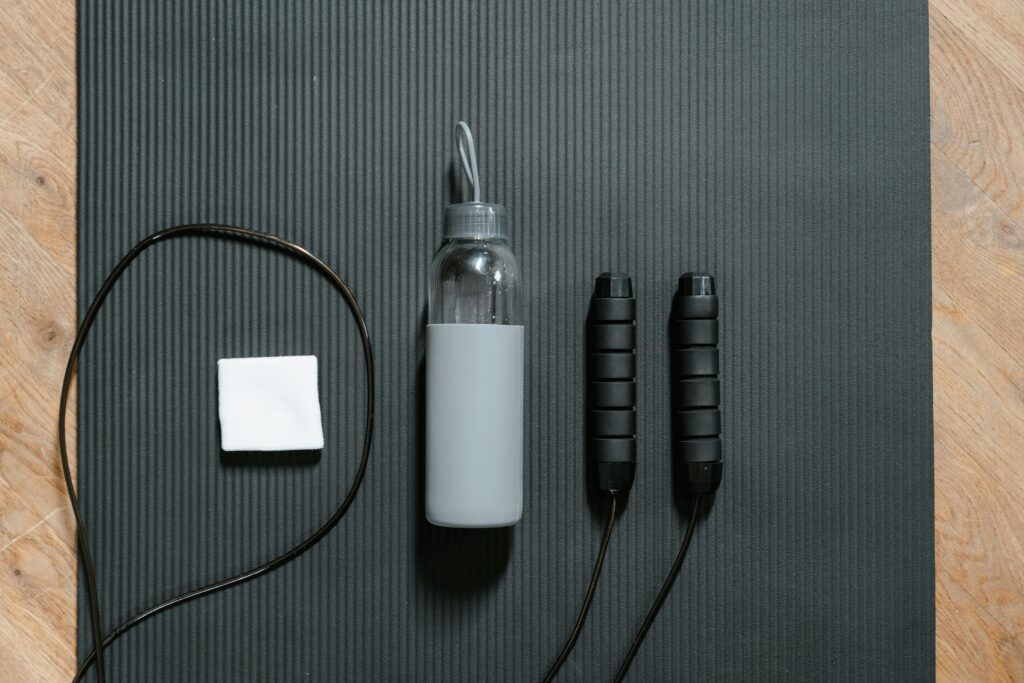
1. Hydration for Strength Training
- Water supports muscle contractions and prevents cramps.
- Drink 16 ounces (500 ml) of water 1-2 hours before training.
- Sip water between sets to maintain hydration.
2. Hydration for Cardio Workouts
- High-intensity cardio causes more sweating, requiring increased water intake.
- Consider an electrolyte drink if the session lasts over an hour.
3. Hydration for Yoga and Pilates
- Even though these workouts seem less intense, hydration is still essential.
- Drink plenty of water before and after to prevent dizziness.
4. Hydration for Outdoor Workouts
- Exercising in hot weather increases sweat loss, making hydration crucial.
- Carry a water bottle and take frequent sips.
- Use cooling towels or mist sprays to regulate temperature.
Hydration Tips for Different Fitness Levels
Beginners
- Start with a hydration plan and make it a habit.
- Carry a water bottle and track your intake.
- Avoid sugary or caffeinated drinks that can cause dehydration.
Intermediate and Advanced Athletes
- Pay attention to electrolyte balance, especially in endurance sports.
- Experiment with different hydration strategies to find what works best.
- Consider hydration supplements if needed.
Conclusion
Staying hydrated before, during, and after workouts is vital for optimal performance, endurance, and recovery. Proper hydration enhances muscle function, prevents fatigue, and keeps you energized. By following the best practices outlined in this guide, you can ensure that you remain properly hydrated and maximize your fitness potential.
Key Takeaways:
- Drink water consistently throughout the day, not just around workouts.
- Adjust hydration based on workout intensity, duration, and climate.
- Monitor urine color and body signals to assess hydration levels.
- Use electrolyte drinks when necessary for long-duration workouts.
By prioritizing hydration, you set yourself up for better workouts, faster recovery, and improved overall health. Cheers to staying hydrated and reaching your fitness goals!

